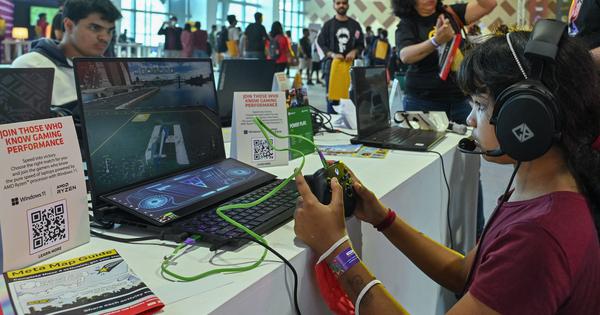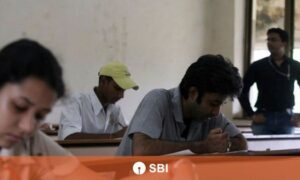
The Online Gaming Bill 2025 passed in Lok Sabha last week has a clean, catchy promise: make online games safe, particularly for children. Ban the betting, limit the playtime, hold platforms accountable. Crucially, make parents the final gatekeepers for under-18s. No parental consent, no game. Simple, right?
Except, it isn’t.
This is not the first time Indian laws have turned to parents as the safety lock on children’s digital lives. The Digital Personal Data Protection Act of 2023 did exactly the same, demanding parental consent before a platform could process a child’s data.
At the time, when I wrote about it in Scroll, I argued that we had created a system where parents were treated as all-knowing guardians in a world they barely understood. We had placed them in the cockpit without ever teaching them to fly.
Two years later, here we are again. Only this time, the cockpit is flashing with neon lights and addictive loops of online games that children inhabit with ease. Again, parents are asked to play referee without knowing the rules.
The law vs the living room
On paper, the Online Gaming Bill is impressive. It calls out the gambling industry in disguise, forces platforms to register and comply, and demands safeguards like time limits and spending caps for minors. Most importantly, it places parental consent at the centre.
But here’s the catch. Laws operate in legalese; families operate in living rooms.
A parent who shrugs off the “consent” pop-up without understanding what’s being permitted is not acting as a safeguard, but as a rubber stamp. A parent who says, “I don’t understand these apps” is essentially leaving their child alone in a casino and hoping for the best.
The gap between legislative ambition and household reality is yawning. Parents are now arbiters in spaces where their knowledge is weak.
Children navigate these spaces like natives, while their guardians stumble like tourists.
The illusion of control
We’ve seen this illusion before. Smartphones swept through Indian homes faster than parents could adapt. While children discovered Instagram trends and Discord servers, parents were still figuring out how to silence the family WhatsApp group.
As a result, a whole generation of kids outpaced their guardians, even as the rules at home remained anchored in clichés: “Bas phone mat chalao zyada” or “Padhaai pe dhyaan do”. Don’t spend too much time on your phone. Pay attention to your studies.
The Online Gaming Bill tries to fix this by making consent mandatory. But consent without comprehension is meaningless. If parents have no idea what loot boxes are, their consent is little more than a blind nod.
The law has given parents the joystick, but the truth is that many don’t know where the buttons are.
Parenting needs a reboot
The easy narrative is to blame parents for being careless or digitally illiterate. But the reality is harsher: India has never invested in preparing parents for the digital age. We treat technology as an optional extra, something kids will “figure out” on their own, while adults can remain proudly ignorant.
That was barely tenable a decade ago. Today, it’s reckless.
Parenting in 2025 cannot be the same as parenting in 2005. The playground has shifted from parks to platforms, from gullies to game servers. Strangers don’t knock on doors anymore, they send friend requests. Pocket money isn’t handed over in crumpled notes, it leaks through in-app purchases.
In this landscape, parenting cannot stay stuck in analog instincts. It needs a reboot.
So what does rebooted parenting mean? It doesn’t mean banning screens or forcing children into digital exile. It means equipping parents with the awareness, tools, and confidence to guide their children in this new terrain. That requires a serious shift at the community level, not just at the dining table.
The most obvious entry point is the school system. Today, parent-teacher meetings today are almost entirely focused on grades, attendance, and discipline. These meetings should be restructured to include a 20-minute module on online gaming, data protection and cyberbullying. Schools should host regular digital literacy workshops not just for children, but for their parents, sessions that decode gaming mechanics, explain the risks of in-game spending, and teach parents how to use parental control dashboards.
Another point of intervention is at community level. Parenting is not a solo act; it thrives in community. Local resident associations, mohalla committees, even religious and cultural organisations could host awareness drives. Picture a Sunday morning workshop at the community hall where parents learn about cyber grooming, sextortion scams, and safe gaming practices.
The state has already set the tone by legislating. Now it must follow through by funding capacity-building programmes. NGOs working on child rights and online safety can step in as facilitators.
Schools and local governments should develop toolkits. Simple handbooks, infographics, and short videos, that explain new laws in plain language and provide step-by-step guidance on parental controls. The goal is to turn the abstract consent into something concrete parents can act on.
Parenting has always been about preparing children for the world they live in. That world is now digital. It’s time parents learned to live there too.
Salik Khan is the founder of PIIR Foundation a non-profit organisation dedicated to protecting children’s rights in the digital world.
This article first appeared on Scroll.in
📰 Crime Today News is proudly sponsored by DRYFRUIT & CO – A Brand by eFabby Global LLC
Design & Developed by Yes Mom Hosting






